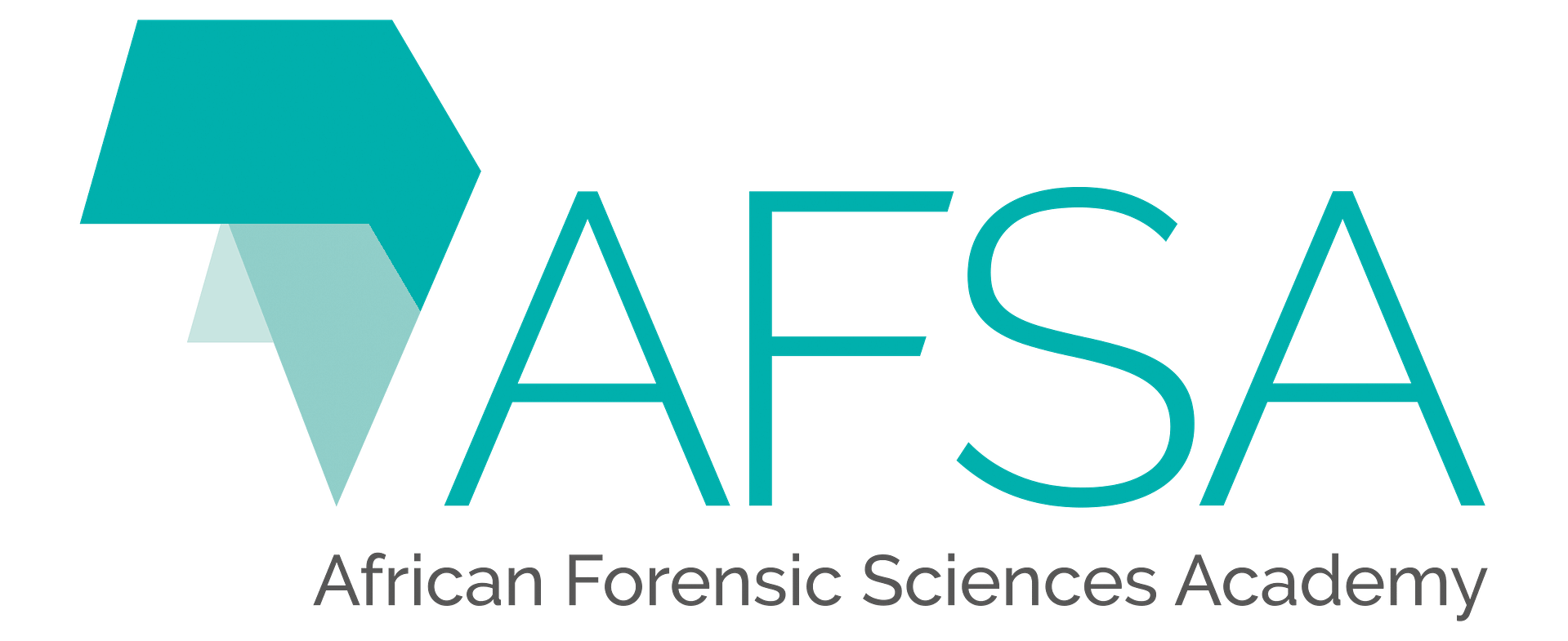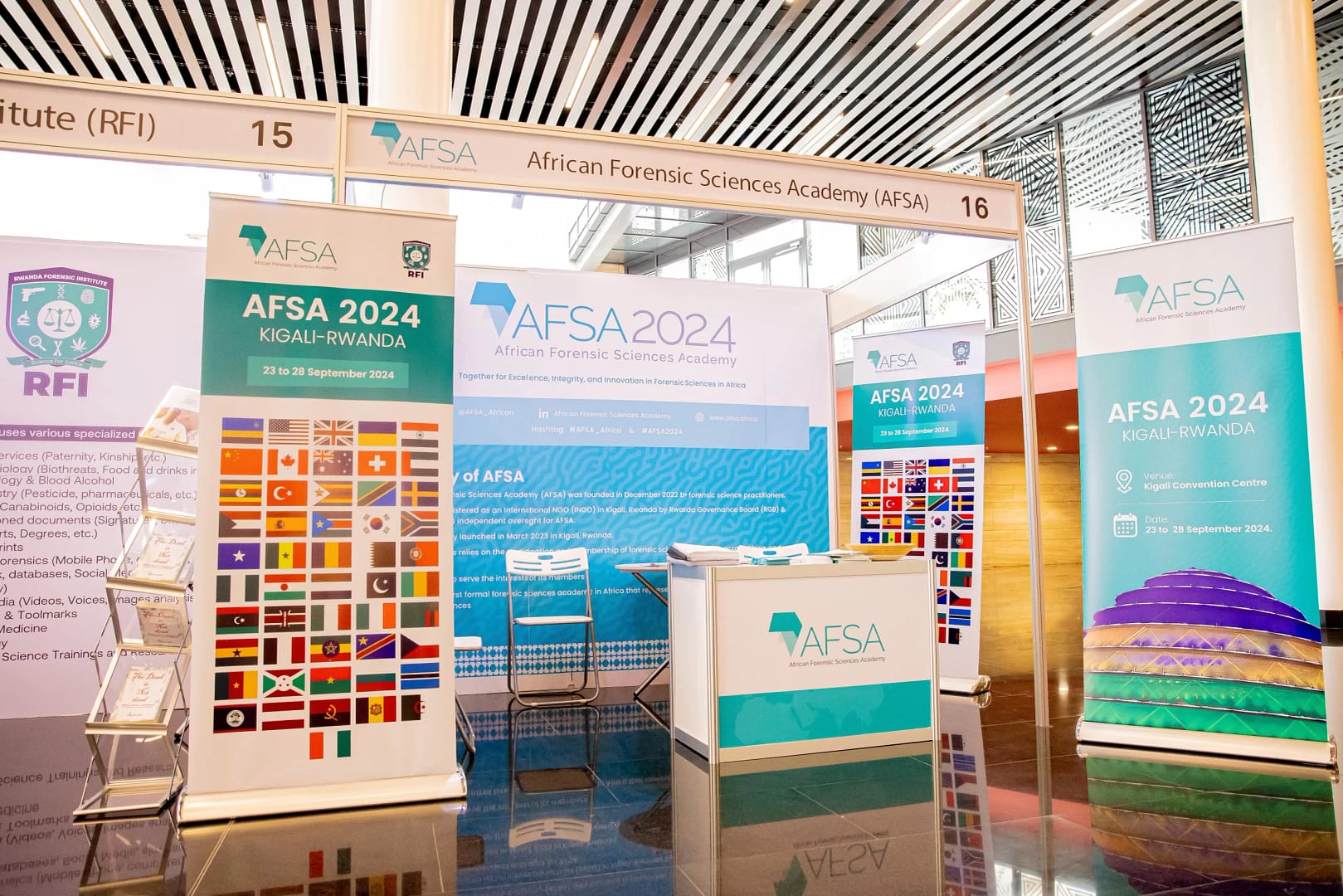The African Forensic Sciences Academy inaugural conference (AFSA2024) in Kigali, the capital city of Rwanda, opened with two days of intensive workshops, immersing participants in the cutting edge of forensic science. These sessions provided a platform for seasoned and young forensic professionals to delve deep into the latest research and methodologies currently driving the field of forensic science.
The workshops were led by a distinguished lineup of global forensic experts, including Prof Claude ROUX, Prof Heesun CHUNG, Prof Yanko KOLEV, Prof Lena KLASÉN, Prof Michelle MIRANDA, Prof Mehdi BEN KHELIL, Dr Antonel OLCKERS, Dr Marise HEYNS, Ms Manon CHABERT, Ms Yen Ling WONG, Dr Niclas FOCK, and Mrs Anna DAVEY. Their sessions tackled a range of pressing topics, ranging from the intersection of technology and science to forensic methodologies tailored to Africa’s unique challenges. As participants gathered from across the continent, the conversations spanned numerous vital topics, offering both theoretical insights and practical applications.
The first workshop was related to THE TRACE in forensic science (as defined by the Sydney Declaration (SD), which AFSA adopted) and clarified that it is “the trace” that is followed in forensic science from where it originates (e.g. the crime scene) up to its delivery to the justice system in for instance, a report submitted to court. Terminology is important and this workshop demonstrated clearly why it is relevant to speak about the trace prior to it being submitted to court, where it becomes evidence. This workshop served to get AFSA2024 on the same page as to how forensic science is defined in Africa, via the adoption of the SD by AFSA.
The second workshop provided the opportunity to define, unpack and discuss what the “Ecosystem of Forensic Science in Africa” is. Its challenges, opportunities, strengths and weaknesses were also unpacked in order to understand where we stand currently in Africa and how to forge a road ahead where science can serve justice and society. It was clarified that all who interact with the trace forms part of our forensic science ecosystem. In future AFSA should also work to include all the non-traditional members of our ecosystem in our discussions, such as journalists.
Prof Heesun CHUNG and Ms Yen Ling WONG presented a workshop on “Unravelling New Psychoactive Substances: Forensic Insights and Global Collaboration”. The workshop highlighted key aspects that are highly relevant to Africa. Some who chose to attend this workshop described it as an “eye opener”.
The “Frugal Forensics” workshop presented by Prof Yanko KOLEV was a stand out. He explored innovative forensic solutions tailored for resource-constrained environments. This session was of particular relevance for many African countries, where access to sophisticated forensic tools can be limited. Prof KOLEV’s presentation highlighted cost-effective, yet scientifically robust approaches to medico-legal forensic investigations, all of which could empower local practitioners and law enforcement.
Digital forensics, a rapidly evolving field, was another highlight with participants discussing how to effectively manage digital evidence in a time when cybercrime is on the rise. Led by Prof Lena KLASÉN and Dr Niclas FOCK, the session emphasized the need for capacity-building in digital forensics to ensure timely and accurate investigations.
Quality management in forensic science was also a recurring theme, with Mrs Anna DAVEY leading thought-provoking discussions on maintaining high standards in forensic processes. Their sessions underscored the importance of quality control to uphold integrity and trust in forensic results, particularly when they serve as critical evidence in legal proceedings.
Dr Marise HEYNS chaired 2 workshops entitled “Young Professionals in Forensic Science” and “Education and Training: Key priorities in Africa” and was assisted by Dr Adeyemi ADETIMEHIN. The workshops were well attended and the upcoming and early career forensic scientists were keen to learn more about additional qualifications and accreditation. Some discussion and advice was shared about how to build networks and how conferences such as AFSA2024 can lead to nurturing such networks. The importance of publications, and bolstering your profile were also explored. Sharing of information with neighbouring nations were identified as an important new and exciting aspect of AFSA, however, the difficulty of obtaining funding for further training, or conference attendance was identified, as well as institutional difficulties in terms of sourcing equipment for training, and training for quality management.
Publications in forensic science in Africa are under-represented because our work in Africa is often solely service driven. Not publishing has the unintended consequence that the global community is unaware of the work done in forensic science in Africa. To address this AFSA2024 included a workshop on publishing in academic journals. The need for publishing and the cycle of publishing an academic paper was discussed by Prof Mehdi BEN KHELIL, Prof Claude ROUX and Dr Antonel OLCKERS.
Participants also had the opportunity to engage with leading figures who contributed to discussions on topics like publishing in Africa, forensic science education and training in Africa, the trace in forensic science, and the plight of young professionals in forensic science.
These workshops were more than just a transfer of knowledge; they were an opportunity to foster cross-border, cross-disciplinary and cross-continental collaborations. Forensic professionals from around the world exchanged ideas, shared their experiences, and built relationships that will help shape the future of forensic science in Africa and beyond.
The two-day event closed with a sense of purpose and readiness for the future. Delegates left the workshops better equipped, both technically and intellectually, to meet the forensic challenges in Africa.

